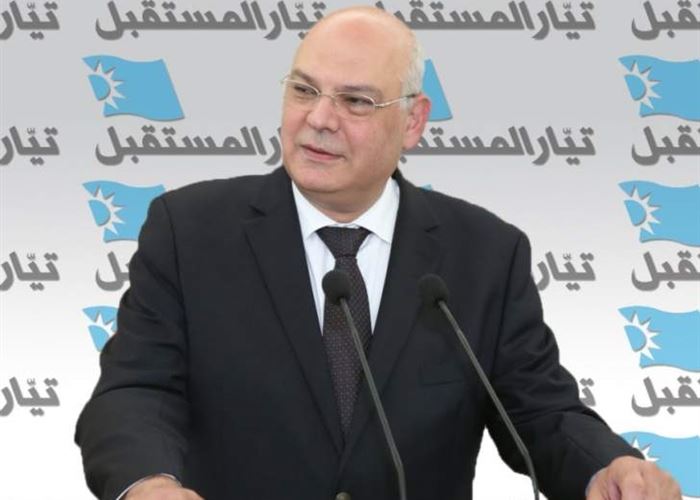The domestication of Hezbollah in the time of coronavirus
Basem Shabb/Al Arabiya/April 10/2020
النائب السابق باسم الشاب: تدجين حزب الله في زمن انتشار وباء الكورونا
Almost four years ago, Hezbollah’s candidate General Michel Aoun was elected president. Two years ago, Hezbollah’s coalition achieved a majority in Parliament. Six months ago, they achieved the same in the council of ministers. Hezbollah had finally achieved full domestic political integration, as well as dominance of the Lebanese political scene, despite US pressure. Nevertheless, governance has proved elusive, despite having allies in all the high places.
Paradoxically, it is the allies that make governance difficult.
The popular revolt of last October, the accelerated economic free fall, and now the COVID-19 crisis, have forced Hezbollah to shift its attention to domestic matters.
Contrary to what Hezbollah leader Hassan Nasrallah has claimed repeatedly, economic collapse affected all Lebanese, including his Shia base. With Hezbollah and its allies exclusively in government, denying responsibility was no longer credible or possible. For too long Hezbollah blamed pro-western March 14 parties in the previous unity government for hampering reform.
With Hezbollah and its allies in charge, several voices, including the editor of the pro-Iranian Al-Akhbar newspaper, have pleaded openly with Nasrallah to distance himself from some of his corrupt allies. For once, Hezbollah has gone on the defensive.
There is little doubt that the image of Hezbollah has been tarnished by the inability of the current government to implement reform and for its failure to effectively confront the financial crisis.
Gone are the lofty themes of confronting the Zionist entity or battling takfiris. The civil war in Yemen and the Bahraini crackdown are no longer the primary concern of the Shia community in Lebanon.
In an attempt to placate his base, Nasrallah shifted his attention to economic and financial issues, presenting a long and naive salvage plan that depended heavily on Chinese sponsorship and local remedies after earlier assurances that the Iran-backed group’s cadres would be spared economic hardship quickly dissipated.
Hezbollah’s earlier intransigence in accepting International Monetary Fund help gave way to backtracking after it became apparent that there is no other credible bailout and that Lebanon needs a rapid infusion of cash that only the IMF could provide.
The coronavirus pandemic has further compromised Hezbollah and the current government after flights continued from Iran to Beirut unabated. Indeed with the collapse of the price of oil, even Iranian financial support is now in question.
Put simply, Hezbollah’s resources as well as those of its sponsors fall short of coping with the economic meltdown that was made worse by the coronavirus pandemic. Hezbollah now needs the full resources of the state to survive. And the state needs the full resources of the IMF.
Recent riots in a Shia neighborhood were a clear indication that ideology alone can no longer carry the day, especially given that Sunni militancy is no longer a primary threat. Currency devaluation as well as rampant inflation are weighing heavily on Hezbollah’s standing. While some followers might endure such hardship, many of its allies will not.
The fate of Hezbollah is now tied to the economy. Whereas the previous government had some sway with Western powers and some Arab states, this one has none. The current government faces unprecedented Arab isolation. And lack of effective reform has alienated Western donors.
To complicate matters, Hezbollah finds itself in the midst of crippling factional and sectarian tensions. The strategic alliance of the “axis of resistance” parties seems to have lost any relevance in local politics.
Just recently, Gebran Bassil, the key Christian ally of Hezbollah, was critical of ferrying Lebanese back to Lebanon. He also voiced support for a capital controls bill to regulate the financial sector and spoke positively of seeking the help of the IMF, in flagrant opposition to Hezbollah and its main Shia ally, Speaker of Parliament Nabih Berri.
Hassan Diab’s Hezbollah-backed government is imploding with internal dissent. Whereas Hezbollah’s missiles may deter Israel, they give the group little leverage in dealing with the petty bickering of its allies. Its lofty themes have lost their luster in the gutter of local politics and a deep recession. Gaining legitimacy came at the cost of domestication. Hezbollah to a large extent is now a state actor.
The irony is that Hezbollah controlled the state when it was a non-state actor, but lost that control when it became one. In a reversal of fortune, Hezbollah now needs the state more than the state needs Hezbollah.
Moreover, Hezbollah’s ability to keep its allies in line seems more tenuous.
Nevertheless, Hezbollah and its Shia Amal partner remain the most powerful and organized political force in Lebanon.
The Sunnis have yet to recover from Prime Minister Saad Hariri’s resignation, while the Christians remain divided as they have been for decades. It is unlikely that any alliance can stand up to Hezbollah in the near future.
It is also doubtful whether the October 17 protests can make a dent in Hezbollah’s Shia dominance, let alone other affiliated parties.
The Lebanese Armed Forces remains a stabilizing force but is unlikely to change the status quo in a Hezbollah-dominated landscape. It remains on the sidelines and is unlikely to rock the boat.
The coronavirus pandemic will change much in the world, but not in Lebanon. The current unipolar government seems short-lived and will likely fade away with the pandemic.
Long after the disease is gone, Lebanon will return to its winter of discontent with the usual suspects in place and a new “unity” government. Hezbollah survived decades of war, but it faces its most daunting challenge yet – its domestication in Lebanese politics. The party’s unipolar experiment in power has failed, and it is unlikely to repeat it.
*Basem Shabb is a former member of the Lebanese parliament.




















